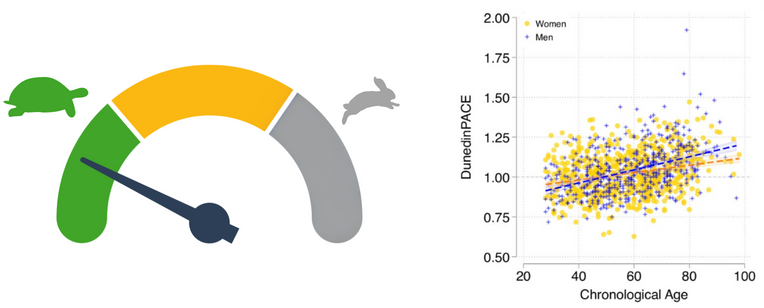
Re-thinking Metformin as longevity pill
A retrospective study was published in 2014, seeding the hype for metformin – a first-line therapy for type II diabetes – to be regarded as a potential “anti-ageing” drug for the general population. The authors of the study reported that diabetic patients on metformin monotherapy were found to have lower mortality than non-diabetic controls, despite the obvious health bias favouring the control group. In other words – counterintuitive – Metformin was turning diabetics into even healthier people than non-diabetics.
This remarkable finding suggests that this drug has benefits for lifespan beyond management of diabetes – benefits which could improve longevity for anyone, diabetic or not. The results subsequently led to ageing-scientist, Dr. Nir Barzilai convincing the FDA to accept an innovative design for the TAME trial (2019), securing a big chunk of the funding he would need from the American Federation for Aging Research (AFAR). Regardless of the study’s merits, this was an important milestone, as the medical conquest of aging has traditionally been held back by the fact that the US FDA and other regulators don’t recognize aging as a disease, despite ageing itself being the strongest risk factor for nine out of the top ten causes of death (*the outlier being suicides).
A recent 2022 study shed more light on the question of whether metformin should be used for longevity purposes in non-diabetics. This was undoubtably a better designed study, with findings contradicting that of the original 2014 study; suggesting no survival advantage for diabetics on metformin. Based on the biology, this appears not only to be in line with independent ITP studies, but absolutely in-line with intuition and our expectation.
What does this mean for in our practice?
We still use metformin quite liberally in people who are pre-diabetic in whom we are getting the diabetes benefit or the pre-diabetes or insulin resistance benefit. I do not believe the current evidence justifies a role for metformin beyond this group, until more data to the contrary comes out from the TAME trial.
However, I must say, we are more excited about the newer SGLT-2 inhibitors Invokana, Farxiga, Jardiance and their promising repurposed anti-ageing potential !
Latest Development
Do you know how fast you are aging?
For the last 2-years we’ve been using a cool test, based upon the latest aging science, that can tell you how quickly you’re ageing, all from a simple pinprick of blood. Up until now, it has been hard to precisely manage our ageing, because we haven’t had a metric geared specifically to this requirement.

My results from last month marked my pace of ageing 0.79; having reduced from 0.84 in July 2022 (12 months earlier). Generally speaking, this means that for every 365 days, I age 288 days. This is great news because even just being slightly above an aging rate of 1 biological year/chronological year can increase your risk of death by 56% in the next 7 years and increase your risk of a chronic disease diagnosis by 54% over the next 7 years.
So what impacted my results?
I cannot say for certain, buthaving kept my – already relatively healthy – lifestyle consistent, notablementions must given to the introduction of more peptide protocols and theconsistent use of Rapamcyin.
Naturally, I would like to see myrate of ageing to keep slowing, and my plan for the up-coming 12-months is to leveragecold therapy & sauna, as these modalities have shown promise in the data,yet I’ve never consistently integrated these consistently in my routine.
Biological Ageing Just got better
What’s even better, our biological ageing clocks – developed by TruDiagnostic in association with Harvard University – will be available to our clients by October 2023.
The precision and ability to capture biological risk of disease and aging, is better than any previous clock. Now we can not only tell you your biological age, but also what is most likely contributing to an age acceleration!
New Report and Insights
TruAgewill continue to include a Pace of Ageing report and many other health offerings; including new insights on patient’s physical fitness, risk of death and disease, protein, metabolite, and clinical biomarkers, immune cell concentrations, and inflammatory markers.
For a deeper look at the science from researchers, you can watch the introductory webinar. This webinar includes presentations from Dr. Jessica Lasky- Su from Harvard University, as well as Dr.Varun Dwaraka and Ryan Smith from TruDiagnostic.

